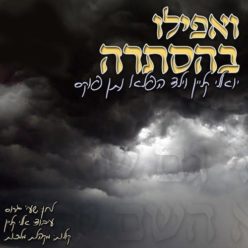He was a living proof that with one's heart and mind alone, one can travel the path of avodas Hashem and reach the highest madreigos attainable in This World
Every Movement Holy
There was a bochur named Chaim from Eretz Yisrael, who passed away recently. I met him in Boston, where I visit sometimes — New York has innumerable wonderful singers and musicians who visit patients, but Boston has less, and since I live in Waterbury, Connecticut, I try to make a point of going there. Toward the end of his life, Chaim was not mobile except for his head, but he had the biggest smile on his face when we’d sing together. During one of our meetings, his father told me that Chaim wanted to give me a gift. He handed me a sefer on Maseches Makkos which Chaim himself wrote at age 14, typing with his eyes. It had a haskamah from Rav Chaim Kanievsky. I was speechless. This young bochur, who seemed so incapacitated and physically unable to do anything, accomplished something barely a handful of healthy adults do in a lifetime. How incredibly humbling. He was a living proof that with one's heart and mind alone, one can travel the path of avodas Hashem and reach the highest madreigos attainable in This World.
—Singer and composer BARUCH LEVINE
Driven to Simchah
It Always Makes a Difference
I once went along with a group to sing for a young boy in the hospital. He was around 11 years old, and so we sang and played music and tried to offer warm and funny songs for his age. At first, he didn’t respond or acknowledge us at all, but eventually, we got a small smile. When we left, no one spoke about it, but I think we all had the feeling that even though we’d tried, we didn’t actually make the child feel happy, or make a difference to him.
The next day, the boy’s father called up the organization who had sent us, to tell them that his child had not eaten anything in four days, and none of his doctors had managed to persuade him to put something in his mouth. But right after we left, he was willing to taste some food. Sure, it’s easier when you can see the patient smiling and clapping and jumping, but even when it seems like your being there has no effect, it usually does.
—Singer SHIMMY ENGEL
Even in the Pain
Patients in the hospital are often extremely bored, and extremely afraid. The chizuk offered by a hartzige song is something that they can hold on to tightly. I still remember, five or six years ago, when “Ve’afilu Behastara” was a huge hit, the message of that song, that Hashem is there behind the pain, was one that really resonated with people who were suffering. But another population who really benefit from live music and singing, although often ignored, are the elderly and nursing-home residents. When I go to sing in a nursing home, I feel like it’s the best hour of the week, for me as well as for them.
—Singer and kumzitz performer DUDI KNOPFLER
(Originally featured in Mishpacha, Issue 819)


